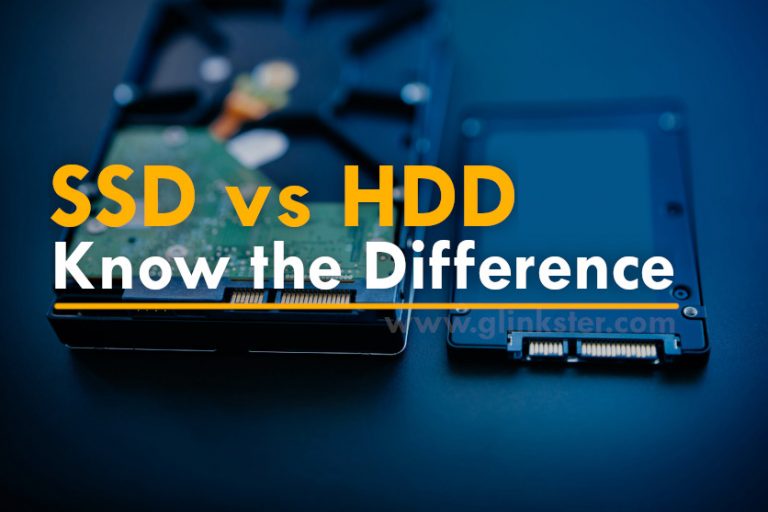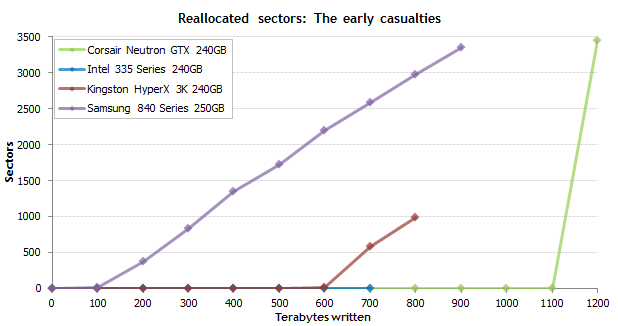Today I am going to answer a question which maybe you answered yourself – Should you get an SSD? Are they better than Hard drives in what ways? What are the advantages and disadvantages of both? SSD vs HDD – Which one should you get?
Spoiler Alert! I am going to answer a question right now, yes you should get an SSD, they are amazing and the most important thing is though Why? Why might you get one? Would you use it with the hard drive? Why might not necessarily you only get the Solid State Drive?
I am going to answer all of the questions because that is just as important. So hopefully anyone reading this far was not convinced by me by just saying yes you should get an SSD but rather you need a proper explanation from my side.
SSD vs HDD – Comparing Solid State Drives and Hard Disk Drives
| Attribute | HDD (Hard Disk Drive) | SSD (Solid State Drive) |
| Battery Life | HDD draw more power averages 6-7 watts | SSD draw less power, averages 2-3 watts and gives 30+ minutes more battery backup |
| Cost | It costs roughly around $0.03 per gigabyte which is very cheap | It costs roughly $0.20- $0.30 per gigabyte which is quite expensive |
| Capacity | For Notebook – 500GB & 2TB For Desktops – 10TB | For Notebook – 1TB For Desktops – 4TB |
| Operating System Boot Time | It takes average 30-40 seconds bootup time | It takes average 8-13 seconds bootup time |
| Noise | The sound of audible clicks and moving platters can be heard | No Sound |
| Vibration | The vibration of spinning platter can be heard sometimes | No vibration |
| Heat Produced | HDD doesn’t produce large heat, but it will have a measurable amount of heat against SSD | NO heat is there as there is no moving part |
| Failure Rate | Failure rate meantime is 1.5 million hours | Failure rate mean time is 2 million hours |
| File Copy / Write Speed | Anywhere between 50–120MB/s | Generally above 200 MB/s and up to 550 MB/s for cutting edge drives |
| Encryption | Full Disk Encryption (FDE) Supported on few models | Full Disk Encryption (FDE) Supported on some models |
| File Opening Speed | Slower than SSD | Up to 30% faster than HDD |
| Ruggedness | Vulnerable to physical jolts and all type of movements | Not vulnerable to jolts and vibration |
| Affected by Magnetism | Magnets can erase data | SSD is not affected by any type of magnetic effect |
We are going to look at the 4 main important criteria in detail and compare solid state drives (SSDs) and Hard Drives (HDDs). So let’s begin…
1) Performance
Performance is probably the most important factor that everyone is going to look at next to the price, and the truth is, Solid state drives almost always are just gonna blow over the Hard disk drives out of the water in terms of performance.
Hard drives are usually the bottleneck of the computer, that is the slowest part of any computer and even with the SSDs they are a little better, but there is still some kind of bottleneck with your computer because if you think about it, the memory bandwidth for your Ram is multiple gigabytes per second, your computer can handle a lot of information, but it has to read off the hard drive with a speed of 100MB/s and with a solid state drive you can get the speed of 500MB/s which mean you can access all the information on your computer a lot faster, everything is going to load faster, you can be able to write things faster.
The reason everything is faster because of the Solid State Drive uses the flash memory, it doesn’t have to use a mechanical device to search through the drive platters and get the data, it’s all electronic, it can go to any part of data and grab it off instantly. You don’t even have to worry about fragmentation in Solid State Drives because the files could be spread out all over the drive, it can be accessed fast as if they are right next to each other physically on the drive, whereas on a hard drive that is the problem because there is an arm physically move to fetch each piece of data, so this means its gonna take more time than Solid State Drives.
I should mention even in the case of High RPM hard drives like 10k or 15k RPM drives, those are still not gonna be as fast as SSD.
2) Reliability
For the same reasons that the Solid State Drive is very fast, it’s also very reliable. Like I said there is no moving part in the SSD which means there are very few points of failure, whereas, in an HDD, you got that spinning platter, multiple rows, you got the arm moving, it can vibrate when throwing things off, a lot can go wrong with the hard drive.
Theoretically, if you just have a Solid State drive sitting there, there is not really a reason it would ever fail, whereas a hard drive will maybe wear down, the metal components may be brushing up against each other, It’s going to eventually fail, hard drives you must expect them to fail, they will fail, they always do, there is no invulnerable hard drive in the market.
Now that being said, SSDs are not perfect either, there are few disadvantages as compared to hard drives, but I think those are outweighed by the benefits. One of the main ones is that a flash memory cell can be written to a certain number of times. So as you use the Solid State Drives more and more… it could theoretically slow down. However, there is typically a software built into the drivers for these drives that handle all that problems in SSD and distributes the data in an evenly way that not anyone in particular cells is gonna slow down or one of the cells may be does break, fi it does, then it writes that off. So you don’t really have to worry about these bad sectors.
Some tests have shown that typically a Solid State drive is gonna start to get problems after you write about maybe 100 or several 100s terabytes worth of data.
Another small disadvantage of SSDs which can affect the reliability is because its the flash memory, it has to receive the power if it goes for long without being booted up, you could start to lose data, those flash memory cells not able to store that information, whereas a hard drive uses magnetic fields and that is a physical property using a permanent magnet, and even though hard drives do start to lose magnetic property, I believe it’s much faster than solid state drives.
3) Storage
The next main category is Storage. It is another one category where Hard drives typically win at. If you need a lot of Storage you have to go with the Hard drive, there is no other way around it.
SSDs can maybe go up to 4 terabytes and those are gonna cost you up to 1000$ plus, whereas, the hard drives can go up to 12 terabytes and cost up to just 500$. So obviously if you need a ton of data storage, a hard drive is a way to go. You could theoretically buy a bunch of SSDs to accommodate the need, but you just gonna have to pay a large amount of money.
4) Price
If you get a solid state drive that is not huge enough to handle your files, then you gonna spend extra amount on buying another hard drive. And I already mentioned SSDs are a lot more expensive than HDDs. But if you think about it, I would consider it as a usual situation anyway where you would buy both.
You could have SSD as the boot drive, you can put heavy programs on it which takes maximum time to load and anything else apart from this you can put it in the hard drive. I don’t think if you are using a desktop computer, it probably is best to get both or maybe you already have a hard drive and don’t want to get the big SSD, you can get a small one which is good enough to hold whole windows to increase the bootup time.
SSD or HDD – Which one is best for gaming?
So, to answer this main question, should you get an SSD for gaming? I think Yes, you should get an SSD. I don’t think there is anyone who couldn’t get benefited from SSD. I personally have said it above that ‘SSD is the best upgrade that you can make for your computer’, better than RAM, better than CPU.
If you have only been using Hard drives your whole life and when you switch to SSD, it’s gonna be like night and day believe me on this. So in summary, the answer is YES.


